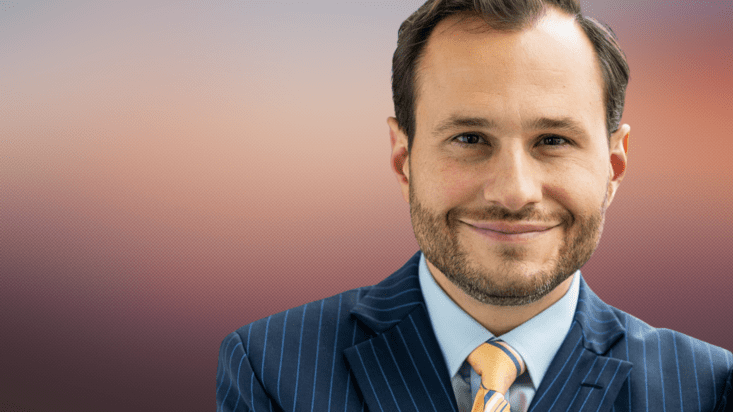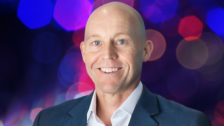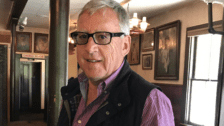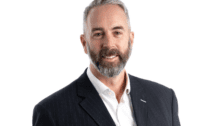David Leon: Leading the boutique, independent advice brigade
It’s a long way from Chicago’s famed financial district – home to the world’s premier commodity, futures, and options exchanges – and a plum job with the world’s largest private wealth manager, UBS, to Adelaide, but David Leon doesn’t regret his move to the City of Churches.
It wasn’t his decision entirely, mind you. Meeting a girl with a passion for music who was missing her hometown Adelaide after living in the US for a few years made it almost inevitable. Stints at Goldman Sachs, JBWere and Morgan Stanley followed before Leon, in league with three other advisers, established Stellan Capital in 2019.
Barely five years later, the firm has a staff of almost 20, funds under advice in the region of $2 billion, oversees about 700 portfolios and handles about 300 family groups. It’s growth has been driven by a focus on intergenerational wealth, whether that be family offices or ultra-high net worths.
Leon explains: “Adelaide doesn’t have a lot of non-for-profits, nor a lot of listed corporates. In this city you must be in the ultra-high net worth space if you want to build a large wealth advisory business. Certainly, it’s worked for us, as we have always had a growth rate around 20 per cent plus every year. Sometimes it’s 40 per cent, sometimes 25 per cent, but always north of 20 per cent.”
Leon sees several trends underpinning the advisory industry’s growth – and not just Stellan. “I have no doubt clients want us to be independent. I saw it happen two decades ago in the US where clients wanted product manufacturers and advisers to be separate – as Americans say, church and state – and now it’s the reality here.”
From this viewpoint, the findings of the Hayne Royal Commission hardly surprised Leon. “What it did was tell everyone that a household brand was no guarantee of a fiduciary outcome. A lot of people had a lot of faith in the brand, thinking (the firm or bank) would put them first. But the commission shed light on the fact that the brand does not come with a guarantee it will put its interests ahead of yours.”
What did surprise him was how long it took for the review to be held in Australia. “The system was horribly skewed towards promoting conflicts of interest as it stood,” he says. “The analogy I use is that a pharmaceutical company can’t be your doctor. So, while I’m very happy to work with product manufacturers, I just don’t want them selling product directly to my clients.”
Going hand in glove with a client desire for independent advice is personalised service. Clients want to feel like they belong, that they’re more than a number, and, as Leon says, “it’s harder to do that when you’re at a large firm”.
“To me, this is the real story – the rise of the boutique. Why are there so many boutiques popping up and why are they staying at a certain size and not getting too big right? I think clients want us to be nimble, so when the markets change you can quickly make asset allocation changes.”
For Leon and his fellow founding partners, maintaining that boutique status is critically important. It’s why acquisitions are off the table because they have the potential to disrupt Stellan’s boutique culture. Instead, the focus will remain on organic growth, with the only branches being Adelaide and Melbourne. Sydney, Leon jokes, “is too similar to the US”, which is funny because Leon is American. But even he concedes it is likely to happen one day.
When it comes to wholesale versus retail clients, with a strong focus on wholesale personalised service, it’s hard to knock back a client’s request for Stellan to assist a family member or friend who might be retail. “Our clients expect us to act on their referrals. It could be their parents, their best friend, their kids. We can’t be in the business of saying ’no’. So, it’s important for us to make sure that we’re adequately resourced, staffed and licensed.”
The other trend that Leon identifies as driving the advice industry’s growth is technology. “Let’s be perfectly clear on this. Truly, technology has set us free because 15 years ago, a boutique could not compete with a large firm when it came to technology. Today we’re on a level playing field.
“At Stellan, we have deliberately chosen not to build any proprietary technology given how rapidly change occurs. Instead, we invested all our time and capital into assembling the best cloud-based systems to have the flexibility to meet the changing demands of our clients.”
While Leon is buoyant about the industry’s future, he laments the years of under-investment in education and minimum standards in the advice space. “When I came here, I felt that the industry did not enjoy the level of prestige, or event respect, that it had in the US. We’re getting there now, but it will take time to build.”
The lack of female advisers is also a negative for Leon, and he says the industry needs to move quickly to address this imbalance. “The simple fact is that more and more women are asking to speak with someone who might understand them or their situation better, and that may not be a man, so this needs to be acknowledged by the industry.”











